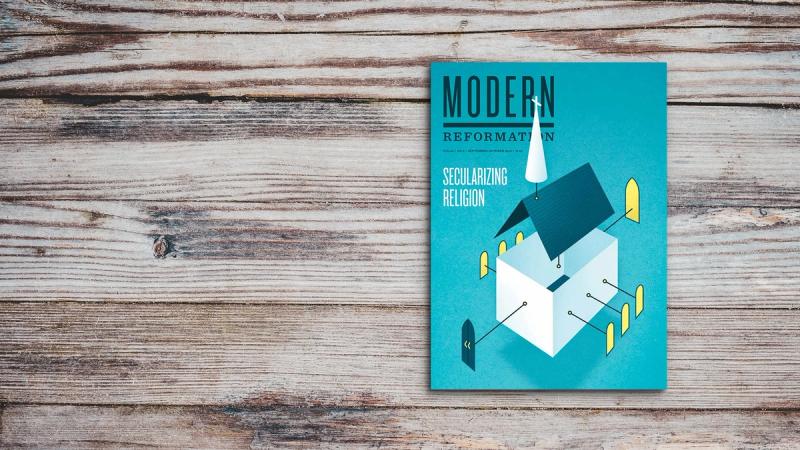What does your sin deserve? As Christians, we know our sin deserves punishment. It is displeasing to God. Yet how does our Lord really perceive it? What does his justice actually require? On the slopes of Sinai, we saw glimpses of glory in that sapphire pavement.
We beheld an impression of paradise, of what it is like to have communion with a blessed and holy God forever (Exod. 24:9-11). And yet, the steps up to that sapphire stage were lined with righteousness. They were carved out by the law. The one who does them shall live by them. The cherubim guarded that vertical ascent, chanting, “Only the righteous shall pass.” God’s people saw they needed righteousness to dwell on God’s holy hill.
We got a morsel, an appetizer, of this beautiful righteousness in King David, a man after God’s own heart. David kept the Lord’s commandments and followed him with his whole heart. Founded on his obedience, God granted to David a house, an eternal throne, and a son to build the temple and to reign forever. Solomon ushered God’s people into a period of peace. He painted Jerusalem with gold. He raised the temple and the glory of God filled it, which gave us another reflection of glory. Solomon appeared to be the son who would open the gates of righteousness and march the people into God’s presence in his train.
But Solomon, the one on whom all our hopes seemed to be set, was an unworthy peg. He broke off from the wall weighed down by the idolatry of his myriad wives. And so we waited. We waited for the righteous king to bring us back to that sapphire pavement, to marshal Israel up the steps of law into God’s presence. Yet, as we waited for the righteous king, our hope became faint, our irritation mounting with heavy impatience. Instead of finding righteousness, we discovered more and more sons of wickedness.
Ahab married the bride of Baal, the temptress of Astarte, who led Israel like Madam Folly down into the depths of Sheol. There were promising kings in the south, like Hezekiah and Josiah, but even these bright lights could not overcome the shadow of Manasseh. His rank depravity polluted the land. He erected false altars on every hill, under every green tree, even more than the Amorites before Israel (2 Kings 21:2-9). Manasseh planted in Jerusalem the screams of Topheth, where they burned their infants alive to Molech. They seared the flesh of their babies for an idol (Jer. 19:5). This is the wickedness Manasseh cultivated in Jerusalem, and as the king led, so followed the people. These are the cries that God’s justice roared against as a lion on the day of the Lord.
God did send prophets, warning them and calling to them, “Repent, turn.” The people’s hearts, however, were rock solid in wickedness. They would not stand for God’s Word; they would not turn from their evil ways. And so, their sins started to pile up in God’s holy house. The holy place called after God’s own name became filled with the filthy laundry of Judah’s sin. Their depravity turned God’s place into a sewer. Where at Sinai we caught a glimpse of glory, now we are exposed to what sin deserves.
What occurs when wickedness comes into contact with holiness? What happens when the Lord’s holiness breaks out against his unholy people? The prophets had warned that the Day of the Lord was coming’the day when the Lord would stand and require justice. Therefore, on a hot fall day in Jerusalem, the dam of the Lord’s anger burst. The Day of the Lord gushed forth and it was not a day of salvation. It was not a day of the sun rising, but a day of darkness with thick clouds and the whirlwind of the Lord’s wrath. The Lord prepared a sacrifice on the Day of the Lord’but it was the people themselves (Zeph. 1:7).
The book of Lamentations bewails in mournful tones the darkness of that day. The Lord who was Israel’s father, who was Judah’s husband, stood as an enemy against his people (Lam. 2:5). The Lord bent his bow and pointed his arrows of fury at his own wife without mercy (2:4). The Lord made Zion forget the Sabbath and festival (2:6). His indignation laid waste both king and priest. The law was no more and the prophets were cut off (2:9).
He forsook dwelling with his wicked people. The Lord’s favor was removed and all those expressions of God’s love, care, and mercy were gone’the Lord’s wrath reigned instead. On the day of the Lord’s anger, no one escaped or survived (2:22). God-forsaken, swallowed up in the searing blackness of God’s fury, this is what sin deserves. A weeping and gnashing of teeth that has no cure, no end, is the holy judgment of God against sinners. Lamentations 2 puts us on a rope bridge peering into the fiery pit of hell. This is what justice requires for our sin.
And yet, among these cries, as we peer through the lens of Lamentations 2 into the crater of hell, there is one cry that rises above the rest, one shriek that is the most bitter of all: “Eli, Eli, lama sabachthani?”‘”My God, my God, why have you forsaken me?” (Matt. 27:46). Yes, through the shadow of Lamentations 2, we can see Golgotha. We can see a tree, a cursed cross, and upon that cross a man is nailed. A king is mocked and spit upon. The Word become flesh is hung, impaled upon that tree. The Righteous One dies. We see the wrath that Christ’the innocent one, the righteous one’takes upon himself. The punishments of Lamentations 2 are Christ’s wounds by which we are healed. We behold what our sins deserve, how Jesus is crushed for our wretched iniquities. And so we witness our redemption, our atonement, our rescue from God’s holy wrath. We see how God in love can be both just and the justifier of those in Christ by faith, because Christ became sin and suffered our punishment, so that we might become the righteousness of God in him. Praise the Lord.





